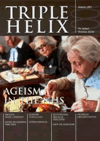This book is written by a Consultant in Palliative Medicine and a Professor of Moral Philosophy. The first edition was well received, judging by two reprints since publication in 1996, and three new chapters have been added to this edition.
It is remarkable that it does not include a discussion of euthanasia and physician-assisted suicide. Euthanasia is dismissed on the grounds that it 'is not part of palliative care'. As many people are confused in their thinking about both issues, an incisive chapter would have made the whole book more relevant.
The discussion about double effect (an intended good effect with a foreseen risk that bad effects could occur) is also disappointing. Double effect is central to medicine and stems directly from the fact that all treatment carries risks with it. Thus, for the authors to say that double effect is not recognised in law is nonsense.
In the chapter on emotional care, communication skills and counselling are parodied and misrepresented. We are told that compassion and genuine concern is all that is needed, and that training will lead to obstructive non-genuineness. In the preface, for example, it states that, 'There cannot be a specifically professional expertise in emotional care', and furthermore, 'The normal fears, anxieties, regrets, or guilt of human beings facing their death are not appropriate subjects for professional techniques'.
I am writing this from India where palliative care is available for only 3% of the 1.6 million cancer patients who need it annually. I know from world-wide experience that communication skills training releases doctors from avoidance behaviours acquired through their cultural upbringing and from the innate fear of death present in all people. Only then, are they enabled to be genuinely warm and supportive, and thereby interpret the complex physical and psychological interactions in their patients. Pain, par excellence, is a somatopsychic experience, and its evaluation requires the application of both taught physical and taught psychological examination skills.
The value of the book is further reduced by lack of discussion on the tension between deontology (duty ethics) and consequentialism (the rightness of an action being determined by its consequences). There is, however, frequent reference to 'utility' which is differentiated from social justice (the equitable use of available resources). Reference is also made to the fact that respect for patient autonomy is so out of hand in the USA, that some American commentators maintain that there is an obligation to supply treatment requested by the patient even if the physician considers it to be grossly inappropriate. As is stressed in this book, the middle way is partnership between the patient and professional.
These incredible misunderstandings and misrepresentations place a major question mark over the validity of the whole book. Palliative Care Ethics can therefore be recommended only for intellectually robust individuals and should carry a prominent public philosophical health warning.
Reviewed by
Robert Twycross
Consultant in Palliative Medicine in Oxford































